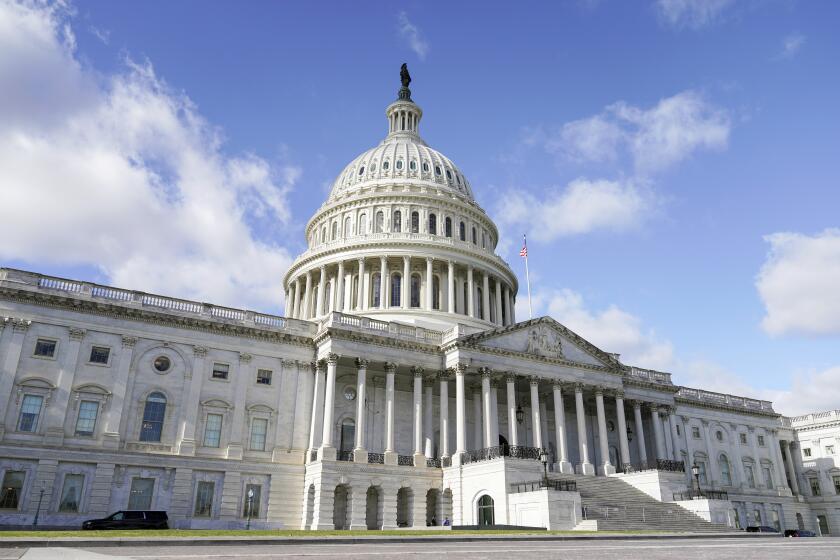Testing the Belief in Polling Infallibility
Everybody talkin’ ‘bout heaven ain’t gettin’ there . . . . --Lyrics from old spiritual
Pollsters serve our intelligence in much the same way that pots and pans salesmen serve our kitchens. Very little.
No sooner did President Reagan complete his review of the Iran -contra scandal some weeks ago than the pollsters were at work. In less than 24 hours they described a dramatic turnaround in the President’s popularity of which none would have been aware but for the pollsters’ labors. Lest you think, however, that pollsters lie fallow between presidential speeches and elections, be assured they do not.
Here are the results of a poll taken recently when not much else was happening. It is a poll on heaven and hell. Since many of you missed it and since it deals with something to which we all devote a certain amount of thought, I am sacrificing any kind of original thinking in order to pass the results along to you.
According to the poll, 80% of Americans believe that heaven exists and 67% harbor the same belief about hell. Seventy-two percent of those who believe in heaven rate their chances of going there as good to excellent. They are, however, less confident about the prospects of their friends. Of the 72% who believe they will land in heaven, there is, I regret to say, a certain smugness. They think only 60% of their friends will follow them to, or precede them in arriving in, heaven.
That same group of smuggies is reported to believe that 25% of their friends will land in hell. Why those who believe that 25% of their friends will land in hell have not dropped those friends is unexplained. If I thought that 25% of my friends were destined for the nether regions in the hereafter I would drop them fast lest confusion arise when it comes time to assigning me a place in eternity. If you know any smuggies you may want to ask them why they stick by their hellbent friends.
Pollsters love to tell you what effect a college education has on the polls. The heaven-hell poll is no exception. The poll reports that the more you know the less you believe. Knowledge, one may conclude, crowds out belief, something that will come as no surprise to many of my readers.
Fifty-six percent of people with college educations are reported to believe in hell compared with 71% without. Although nothing is said about where people with graduate degrees come out on this issue it is probably safe to assume that even fewer of them believe in hell. That would comport with the low esteem in which the holders of advanced degrees are usually held by the public.
The existence of heaven is not, the poll suggests, important to a belief in God. Although only 80% believe in heaven, 96% believe in God. That suggests that for 16% of those polled, the question of where He lives is unanswered and, for all I know, unimportant. (Women among my readers may take offense at the use of the word He but according to the poll 60% of those questioned think of God as a He, none of them thinks God is a woman and 37% think God is neither. The poll does not give a hint as to what the alternative might be.)
Twenty-seven percent of those polled claim to have read the Bible from cover to cover, a statistic that places in doubt all the other conclusions at which the pollsters arrived.
Half of the homes with children say grace before meals, an indication that their children are better mannered than mine were.
Six out of 10 say they talk with God rather than engaging in formal prayers. Although not reported, my guess is that these six dislike the notion of supplication inherent in prayer and prefer dealing on a more equal footing with the divinity. It is not unlikely that members of that group of six also like to call their employers by their first names even though they barely know one another. It dispels the illusion, so they think, that the employer is in any way superior to the employee.
If you are wondering if the poll is infallible, the answer is that it is not. The pollster reports that it is subject to a margin of error of plus or minus four percentage points. That is only critical if that margin of error affects where you are going to be spending eternity. It probably won’t.
More to Read
Get the L.A. Times Politics newsletter
Deeply reported insights into legislation, politics and policy from Sacramento, Washington and beyond. In your inbox three times per week.
You may occasionally receive promotional content from the Los Angeles Times.






